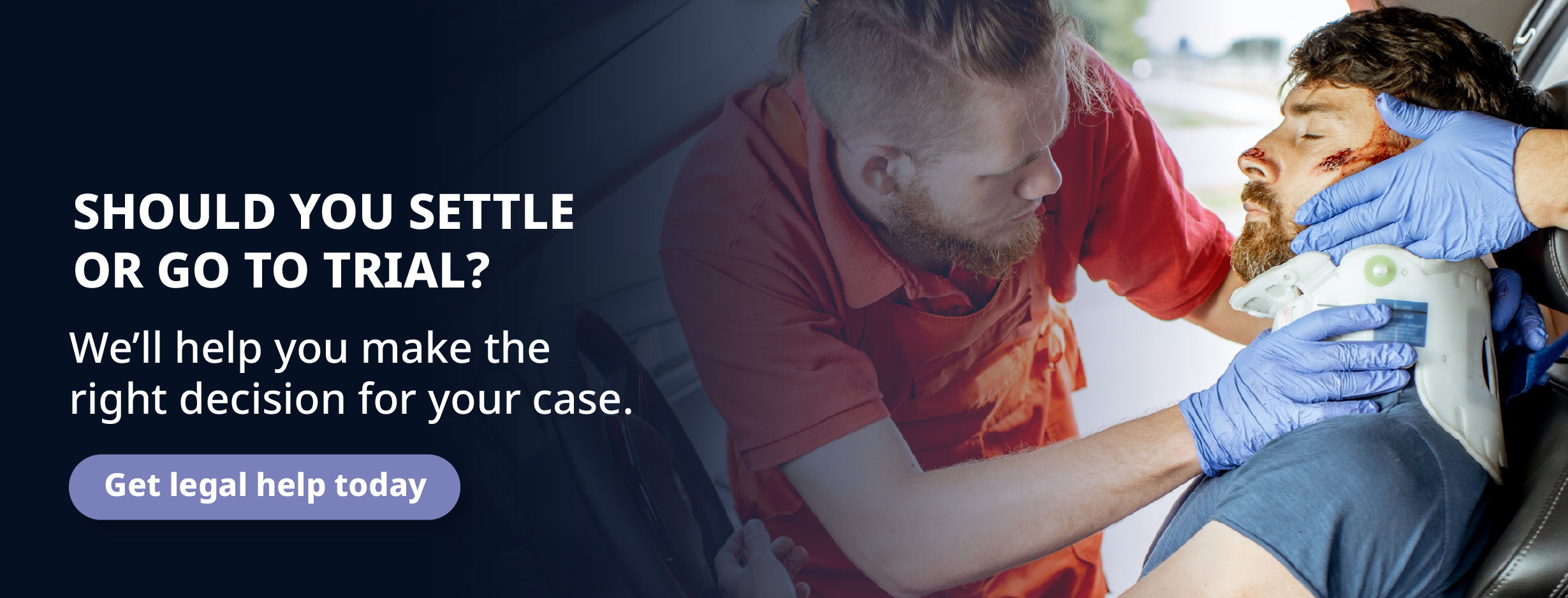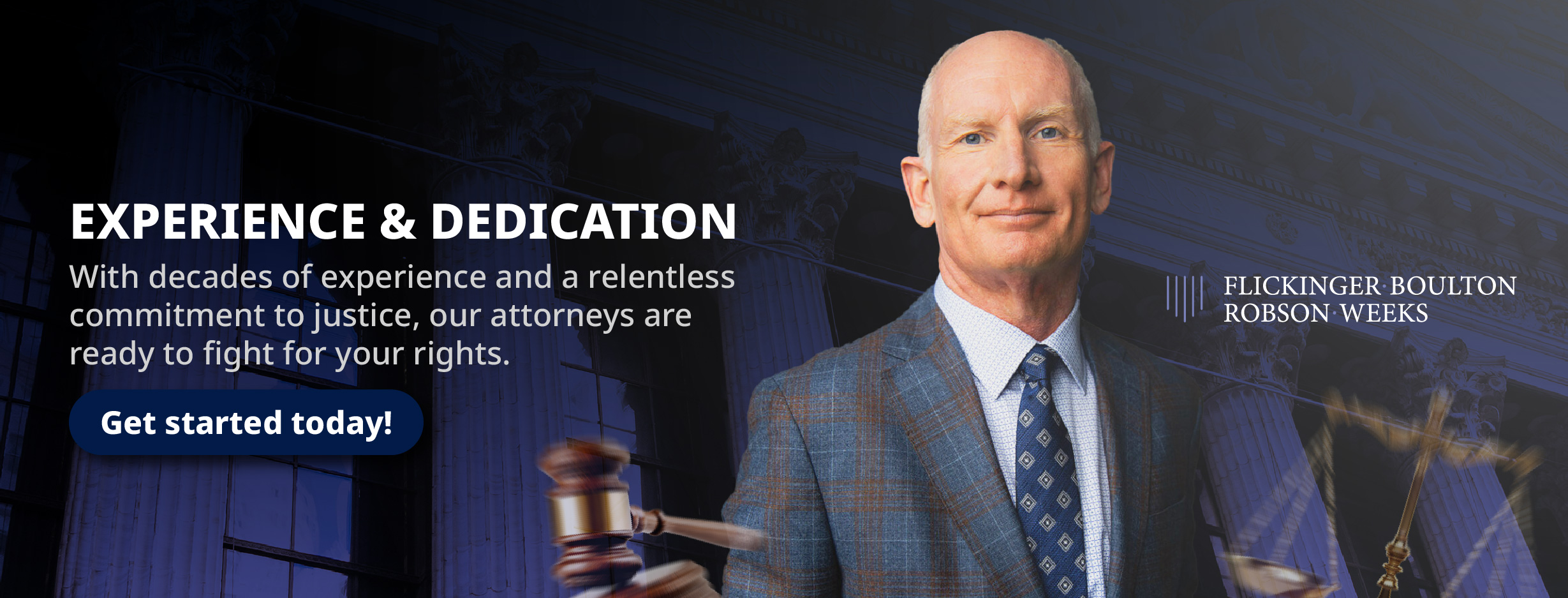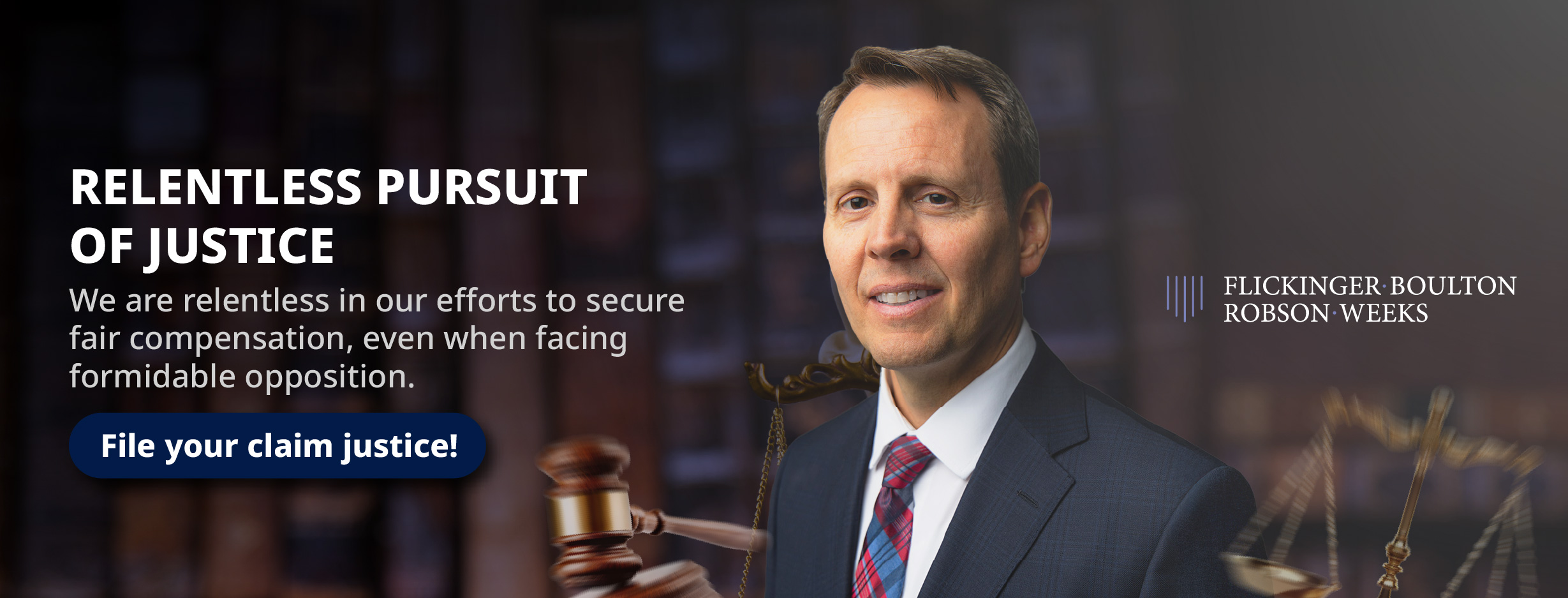¡Hablamos Español!
After a car accident, dealing with insurance companies can be one of the most frustrating and challenging parts of the recovery process. While insurers are supposed to provide compensation for medical bills, vehicle repairs, and other losses, their primary goal is to minimize payouts and protect their bottom line.
Many accident victims unknowingly accept lowball offers or fall for tactics designed to reduce their claims. At Flickinger Boulton Robson Weeks, we know how to handle insurance companies and fight back against unfair settlement offers.
Whether you’re negotiating a claim or facing delays and denials, our experienced Utah car accident lawyers can help ensure you receive the full compensation you deserve. Let us deal with the insurance companies while you focus on healing.

After a car accident, dealing with insurance companies is inevitable, whether you are filing a claim with your own provider or pursuing compensation from the at-fault driver’s insurer. While insurance companies are supposed to cover accident-related losses, their main priority is to minimize payouts.
Understanding how they handle claims can help you protect your rights and avoid settling for less than you deserve.
Once you report a car accident, the insurance company assigns a claims adjuster to investigate the case. Their job is to determine fault, assess damages, and calculate the lowest possible payout. The adjuster will:
While this may seem like a routine process, insurance companies look for reasons to devalue or deny claims, making it crucial to provide strong evidence.
Utah follows a modified comparative fault rule, which reduces compensation based on your percentage of blame. However, if you are found 50% or more at fault, you cannot recover damages.
This is the same code insurance companies use to assign blame and try to minimize payouts.
To lower payouts, insurers may:
Having solid evidence, such as photos, surveillance footage, and expert testimony, can help counter these tactics and prove the other party’s liability.
Once the insurer completes its investigation, they will likely present a settlement offer. However, initial offers are often much lower than the actual value of your claim. Insurers count on victims accepting quick settlements before realizing the full extent of their damages.
Before accepting an offer, consider:
Once you accept a settlement, you waive your right to seek additional compensation, so reviewing any offer carefully before agreeing is essential.
Insurance companies may use delay tactics to frustrate claimants and push them into accepting lower settlements. Standard stalling techniques include:
In some cases, insurers outright deny claims, citing policy exclusions, lack of evidence, or liability disputes. If your claim is delayed or denied unfairly, legal action may be necessary to fight for rightful compensation.
Hiring an experienced car accident lawyer from Utah can level the playing field if you’re struggling to get a fair offer. A lawyer can:
Insurance companies handle car accident claims with one goal in mind: to protect their profits. From assigning blame to offering low settlements and delaying payouts, insurers use various tactics to minimize compensation. Understanding these strategies can help you navigate the claims process effectively.
If you’ve been injured in a car accident, having Flickinger Boulton Robson Weeks on your side can ensure that you are treated fairly and receive the full compensation you deserve.

Insurance companies are in the business of making money, and one of the ways they protect their bottom line is by reducing the amount they pay out on car accident claims. Even when a claim is valid, insurers often use strategic tactics to minimize compensation or deny claims altogether.
Knowing these tactics can help you recognize when an insurance company is trying to undervalue your claim and take the right steps to fight back.
One of the most common strategies is to offer a quick but low settlement shortly after the accident. Insurers know that accident victims are often dealing with medical bills, lost wages, and financial stress, making them more likely to accept an early offer.
However, these initial settlements rarely cover the full extent of a victim’s damages, including:
Accepting a quick settlement prevents you from seeking additional compensation later, so it’s crucial to evaluate any offer carefully before agreeing.
Another common tactic is shifting blame onto the victim to reduce or eliminate their payout. Since Utah follows a modified comparative fault system, if an insurer can prove you were 50% or more at fault, you lose the right to any compensation. Insurers may:
Having strong evidence, such as photos, video footage, and police reports, can help counter these claims and protect your right to compensation.
Insurance companies often challenge the severity of injuries to justify lower payouts. Common tactics include:
To counter these claims, it’s important to seek immediate medical attention, follow your doctor’s treatment plan, and keep detailed records of all medical visits and expenses.
Insurers know that delaying a claim can frustrate victims into accepting a lower settlement just to get the process over with. Some common delay tactics include:
These delays are designed to pressure claimants into settling for less. Working with a personal injury lawyer can help push the process forward and prevent unnecessary delays.
Some insurance adjusters misrepresent the terms of your policy to limit their payout. They may tell victims that certain damages are not covered when, in reality, they should be included. Insurers also attempt to shift responsibility to other parties, such as your own insurance provider, to avoid paying out.
Insurance companies use a variety of tactics to reduce payouts, including low settlement offers, liability disputes, downplaying injuries, delaying claims, and misinterpreting policies. Understanding these strategies can help you navigate the claims process effectively.
If you suspect an insurer is unfairly handling your claim, consulting with an experienced car accident lawyer can help ensure you receive the compensation you deserve.
After a car accident, negotiating with an insurance adjuster can be a challenging process. Adjusters are trained professionals who work for the insurance company, and their goal is to minimize payouts while closing claims quickly.
Knowing how to handle negotiations can help you secure a fair settlement that fully covers your damages.
Before starting negotiations, gather all necessary documentation to support your claim. The more evidence you have, the stronger your position will be. Essential documents include:
Medical records and bills proving the extent of your injuries.
Accident reports detailing the circumstances of the crash.
Photos and videos of the accident scene, vehicle damage, and injuries.
Witness statements to corroborate your version of events.
Having clear evidence makes it harder for the adjuster to undermine your claim.
If negotiations fail and the insurance company refuses to offer a reasonable settlement, the case may proceed to litigation. This means the victim files a lawsuit, and the matter is decided in court. While litigation can be time-consuming, it may be necessary to secure fair compensation.
During litigation, the insurance company may still attempt to settle, especially if they believe they could lose in court. An experienced personal injury attorney can guide victims through the legal process, present strong evidence, and advocate for maximum compensation.
Insurance companies handle personal injury claims with one primary goal: to minimize their financial liability. From low initial offers to prolonged negotiations and delay tactics, insurers often make it difficult for victims to recover the compensation they deserve.
Understanding these strategies and working with a knowledgeable attorney can help level the playing field and ensure that accident victims receive the full amount to which they are entitled.

Insurance adjusters often start with a lowball offer, hoping you will accept a quick settlement. These initial offers rarely reflect the true value of your claim. Instead of agreeing immediately:
Adjusters may try to use your own words against you. Avoid:
If the adjuster refuses to offer a fair settlement, consulting a car accident lawyer can strengthen your case and improve your chances of securing full compensation.
Dealing with insurance companies after a car accident can be frustrating, especially when they attempt to minimize your compensation or delay your claim. While some minor accidents may not require legal representation, there are many situations where hiring a lawyer is essential to protect your rights and secure fair compensation.
Below are key signs that it’s time to consult an attorney.
Insurance adjusters often start with lowball offers, hoping that accident victims will accept less than they deserve. If the first offer does not cover your medical bills, lost wages, or pain and suffering, you should speak with an attorney. An experienced and knowledgeable lawyer can:
If the insurance company disputes fault and tries to blame you for the accident, your compensation could be significantly reduced or even denied altogether. Since Utah follows a modified comparative fault rule, if you are 50% or more at fault, you are barred from recovering any compensation. A lawyer can:
Insurance companies sometimes drag out the claims process to pressure victims into settling for less. Hiring an attorney is critical if the insurer is unresponsive, repeatedly requests unnecessary documentation, or outright denies a valid claim. A lawyer can:
If your injuries require extensive medical treatment or result in permanent disability, you need legal representation to ensure your settlement accounts for:
Serious injuries often lead to higher settlements, but insurance companies will do everything they can to minimize their payout. A lawyer can ensure your case is properly valued.
Some cases involve multiple insurance policies, such as accidents with commercial vehicles, rideshare drivers, or uninsured motorists. A lawyer can navigate complex policies and determine the best course of action for securing compensation.
Hiring a lawyer to deal with the insurance company is often necessary when your claim is undervalued, delayed, or denied. If you have serious injuries, disputed liability, or need help negotiating a fair settlement, an experienced car accident attorney can fight for your rights.
Don’t let the insurance company take advantage of you. Contact a Utah car accident lawyer to ensure you receive the compensation you deserve.